Tag Archives: Shrimp
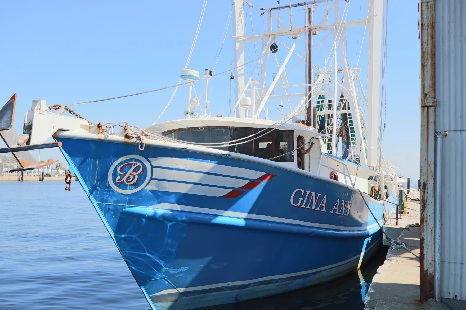
Amid ‘shrimp fraud’ reports, Tampa Bay area shrimpers need support
When restaurants charge a premium for Gulf-caught shrimp and pocket the extra profit by serving farm-raised imported shrimp, they’re denying local shrimpers a fair income. A recent study by SeaD Consulting revealed that 42 out of 44 Tampa Bay area restaurants surveyed were falsely passing off imported shrimp as locally caught. Local shrimpers say the effects of this kind of shrimp fraud go beyond betrayed diners. Shrimper Merritt Joseph Latino has been in the business for over 17 years. On one arm, underneath an anchor tattoo, the words “shrimpin’ ain’t easy” are permanently emblazoned in ink. Photos, more, >>CLICK TO READ<< 07:38
New Laws, Fines, and Genetic Testing in the Battle Over Shrimp Labeling
 When considering things that are distinctly American, several spring to mind. Baseball. Hot dogs. Apple pie. And . . . really good shrimp? While shrimp aren’t unique to the United States, few varieties are as lauded as those caught in the Gulf of Mexico and the Atlantic Ocean by southeastern states such as the Carolinas, Georgia, and Florida. Recent testing has shown that as much as 80% of the shrimp being touted as Gulf- or Atlantic-caught are instead coming from farms in foreign countries. Many diners are getting shellfish considered inferior to what they ordered. And that’s a problem. Efforts are being made on federal and state levels to ensure truth-in-labeling becomes the norm. more, >>CLICK TO READ<< 10:30
When considering things that are distinctly American, several spring to mind. Baseball. Hot dogs. Apple pie. And . . . really good shrimp? While shrimp aren’t unique to the United States, few varieties are as lauded as those caught in the Gulf of Mexico and the Atlantic Ocean by southeastern states such as the Carolinas, Georgia, and Florida. Recent testing has shown that as much as 80% of the shrimp being touted as Gulf- or Atlantic-caught are instead coming from farms in foreign countries. Many diners are getting shellfish considered inferior to what they ordered. And that’s a problem. Efforts are being made on federal and state levels to ensure truth-in-labeling becomes the norm. more, >>CLICK TO READ<< 10:30
Georgia’s Food Shrimp Season Extended Until Jan 17
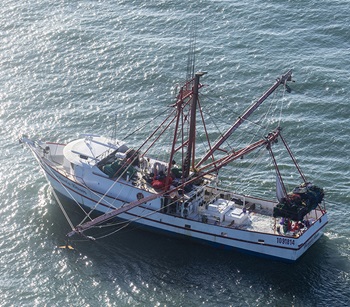 Georgia’s commercial and recreational food shrimp season has been extended to Jan. 17, 2025. This decision by the Commissioner of Natural Resources was based on scientific data and favorable environmental conditions and aims to provide fishers with additional opportunities while maintaining sustainability. The extension applies to Georgia’s territorial waters, which extend three miles out to sea, and allows for the continued harvest of food shrimp by both commercial and recreational fishers. For more information, visit CoastalGaDNR.org or call 912-264-7218. more, >>CLICK TO READ<< 06:25
Georgia’s commercial and recreational food shrimp season has been extended to Jan. 17, 2025. This decision by the Commissioner of Natural Resources was based on scientific data and favorable environmental conditions and aims to provide fishers with additional opportunities while maintaining sustainability. The extension applies to Georgia’s territorial waters, which extend three miles out to sea, and allows for the continued harvest of food shrimp by both commercial and recreational fishers. For more information, visit CoastalGaDNR.org or call 912-264-7218. more, >>CLICK TO READ<< 06:25
Multiple restaurants found mislabeling Gulf shrimp | So why do they remain anonymous?
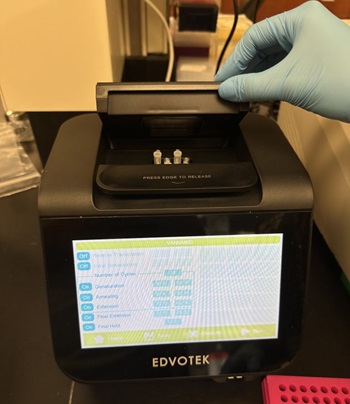 Shrimp and seafood lovers in and around Louisiana and the Gulf Coast may have seen a recent report from SeaD Consulting, a company that does genetic testing of seafood, monitoring for mislabeling and substitution fraud in the industry. In the first in a series of investigations across the state, the company sampled menu items at 24 restaurants in Baton Rouge, discovering that more than one in four dishes sampled were misrepresented. A new law taking effect January 1 will require Louisiana restaurants to clearly state the country of origin of the shrimp and crawfish they sell. If found in violation, restaurants could face thousands of dollars in fines. more, >>CLICK TO READ<< 09:43
Shrimp and seafood lovers in and around Louisiana and the Gulf Coast may have seen a recent report from SeaD Consulting, a company that does genetic testing of seafood, monitoring for mislabeling and substitution fraud in the industry. In the first in a series of investigations across the state, the company sampled menu items at 24 restaurants in Baton Rouge, discovering that more than one in four dishes sampled were misrepresented. A new law taking effect January 1 will require Louisiana restaurants to clearly state the country of origin of the shrimp and crawfish they sell. If found in violation, restaurants could face thousands of dollars in fines. more, >>CLICK TO READ<< 09:43
Moratorium on fishing Maine shrimp to continue through 2025
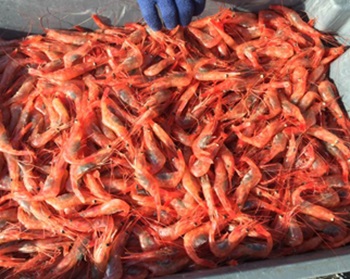 The Atlantic States Marine Fisheries Commission’s Northern Shrimp Section is maintaining the current moratorium on northern shrimp fishing through the 2025 fishing year. That makes 11 years of no commercial shrimp fishing in Maine. That action followed the 2024 Stock Assessment Update, “which indicates the northern shrimp stock has been at low levels of biomass for over the past decade despite the fishery being under a moratorium since 2014,” said the Atlantic States Marine Fisheries Commission in a Dec. 13 news release. The Update found no improvement in stock status and 2023 summer survey indices of abundance, biomass, and recruitment were the lowest in the 1984-2023 time-series. more, >>CLICK TO READ<< 07:32
The Atlantic States Marine Fisheries Commission’s Northern Shrimp Section is maintaining the current moratorium on northern shrimp fishing through the 2025 fishing year. That makes 11 years of no commercial shrimp fishing in Maine. That action followed the 2024 Stock Assessment Update, “which indicates the northern shrimp stock has been at low levels of biomass for over the past decade despite the fishery being under a moratorium since 2014,” said the Atlantic States Marine Fisheries Commission in a Dec. 13 news release. The Update found no improvement in stock status and 2023 summer survey indices of abundance, biomass, and recruitment were the lowest in the 1984-2023 time-series. more, >>CLICK TO READ<< 07:32
Lawmakers demand review of U.S. Government Accountability Office’s oversight of shrimp imports
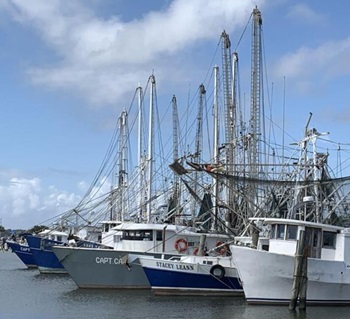 House Committee on Oversight and Accountability Chairman James Comer, R-Ky., U.S. Rep. Clay Higgins, R-La., and U.S. Rep. Troy Nehls, R-Texas, are calling on the U.S. Government Accountability Office to scrutinize whether the U.S. Treasury Department is fulfilling its legal obligation to protect American industries, including the shrimping sector, from international competition. The representatives voiced concerns in a letter sent to the GAO, suggesting that the Treasury may be neglecting statutory requirements that compel the department to oppose foreign economic assistance projects that could harm U.S. industries. more, >>CLICK TO READ<< 08:17
House Committee on Oversight and Accountability Chairman James Comer, R-Ky., U.S. Rep. Clay Higgins, R-La., and U.S. Rep. Troy Nehls, R-Texas, are calling on the U.S. Government Accountability Office to scrutinize whether the U.S. Treasury Department is fulfilling its legal obligation to protect American industries, including the shrimping sector, from international competition. The representatives voiced concerns in a letter sent to the GAO, suggesting that the Treasury may be neglecting statutory requirements that compel the department to oppose foreign economic assistance projects that could harm U.S. industries. more, >>CLICK TO READ<< 08:17
Lawsuit claims Oregon-based Pacific Seafood fired employee for reporting scheme to cheat shrimp boats out of millions
 A former Pacific Seafood employee has filed a $2.25 million lawsuit against his former employer, one of the nation’s biggest seafood companies, claiming it fired him after he discovered one of the brands had been falsifying the weights of catches it bought from shrimp boats and wrongly pocketed an extra $10 million to $20 million. The Portland-area company disputes the allegations in Justin Ottman’s lawsuit, filed last week in Multnomah County Circuit Court. Ottman’s suit, however, describes him as a whistleblower — claiming he’d documented the alleged years-long fraud in a 170-page report he presented to top executives. But his suit says when he continued to push the company to make it right, the company demoted him from his position as interim chief financial officer, forced him to work remotely and gave his desk to an intern before ultimately firing him by telling him his position had been “eliminated” in December 2023. more, >>CLICK TO READ<< 10:23
A former Pacific Seafood employee has filed a $2.25 million lawsuit against his former employer, one of the nation’s biggest seafood companies, claiming it fired him after he discovered one of the brands had been falsifying the weights of catches it bought from shrimp boats and wrongly pocketed an extra $10 million to $20 million. The Portland-area company disputes the allegations in Justin Ottman’s lawsuit, filed last week in Multnomah County Circuit Court. Ottman’s suit, however, describes him as a whistleblower — claiming he’d documented the alleged years-long fraud in a 170-page report he presented to top executives. But his suit says when he continued to push the company to make it right, the company demoted him from his position as interim chief financial officer, forced him to work remotely and gave his desk to an intern before ultimately firing him by telling him his position had been “eliminated” in December 2023. more, >>CLICK TO READ<< 10:23
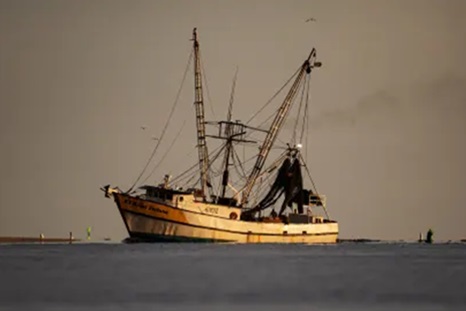
Shrimp scurry from Hurricane Francine storm surge, filling fishing nets of struggling shrimpers
Hurricane Francine closed in on Terrebonne and Lafourche with 100 mph winds Sept. 11. As the storm pushed tidal waters toward land, shrimp scurried for inland waters. Shrimpers took advantage of the migration, dropping nets and pulling in thousands of pounds in a short timeframe. The hauls were great, but the low prices meant what would have been a drop in the bucket, instead fell in an empty pail. “We did good last night and the night before,” Jonathan Guidry said. “The shrimp was jumpin’ all over. They had some land nets on side of us. They was startin’ to pick up every 10 minutes, and they had maybe 120 to 130 pounds every 10 to 30 minutes.” Guidry said with all the flood gates closed, he thinks the shrimp were funneled through the Bubba Dove lock gate as they sought safety from the storm. more, >>CLICK TO READ<< 12:11
“We’re not getting the full value out of it”: The future of local seafood in Louisiana
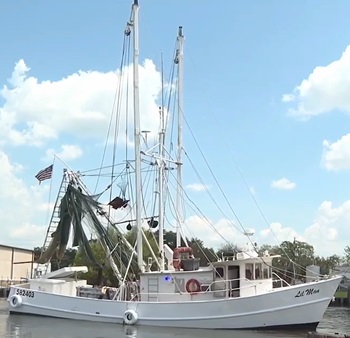 “Industries change over time, like anywhere you are, and so we’re just adapting to the new realities of the seafood supply chain.” LSU’s Seafood Processing Demonstration Lab is a hub for research and innovation. “Our main focus is in underutilized species and byproduct recovery,” said. As the only facility of its kind in-state, this Louisiana Sea Grant-sponsored program works with local processors, restaurateurs, and fishermen, to build local connections. “Louisiana is the #2 seafood state in the nation,” said co-director Thomas Hymel, “but a lot of our product is uh–we’re not getting the full value out of it.” Video, more, >>CLICK TO READ<< 10:10
“Industries change over time, like anywhere you are, and so we’re just adapting to the new realities of the seafood supply chain.” LSU’s Seafood Processing Demonstration Lab is a hub for research and innovation. “Our main focus is in underutilized species and byproduct recovery,” said. As the only facility of its kind in-state, this Louisiana Sea Grant-sponsored program works with local processors, restaurateurs, and fishermen, to build local connections. “Louisiana is the #2 seafood state in the nation,” said co-director Thomas Hymel, “but a lot of our product is uh–we’re not getting the full value out of it.” Video, more, >>CLICK TO READ<< 10:10
Shrimply the best: Discover Alabama’s shrimp industry
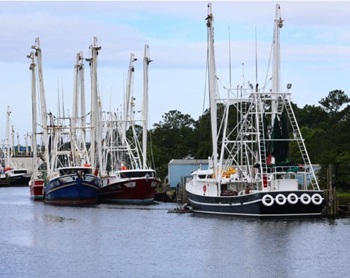 As Bubba Blue famously said in “Forrest Gump,” shrimp is the fruit of the sea. Whether you like it barbecued, boiled, broiled, baked or sautéed, this small creature sure makes a big impact in Alabama. The shrimp industry in Alabama consists of both wild-caught and farm-raised species. Alabama waters are home to between 15 and 22 wild shrimp species. However, only three of these are commercially caught: brown, white and pink. On inland farms, Luke Roy, an Alabama Extension aquatic resources Extension professor, said farmers often raise Pacific white shrimp. “Pacific white shrimp are not native to the Gulf of Mexico, and they are the species of choice by most producers,” Roy said. “They are desirable because of their tolerance for low-salinity water. They also have a desirable feed conversion ratio and the ability to be cultured at high densities with low aggression.” Photos, more, >>CLICK TO READ<< 06:22
As Bubba Blue famously said in “Forrest Gump,” shrimp is the fruit of the sea. Whether you like it barbecued, boiled, broiled, baked or sautéed, this small creature sure makes a big impact in Alabama. The shrimp industry in Alabama consists of both wild-caught and farm-raised species. Alabama waters are home to between 15 and 22 wild shrimp species. However, only three of these are commercially caught: brown, white and pink. On inland farms, Luke Roy, an Alabama Extension aquatic resources Extension professor, said farmers often raise Pacific white shrimp. “Pacific white shrimp are not native to the Gulf of Mexico, and they are the species of choice by most producers,” Roy said. “They are desirable because of their tolerance for low-salinity water. They also have a desirable feed conversion ratio and the ability to be cultured at high densities with low aggression.” Photos, more, >>CLICK TO READ<< 06:22
Study reveals alarming fatality rates in the Texas shrimping industry
 A recent study is highlighting the fatality rates in the shrimping industry, a occupation that drives an essential part of Coastal Bend dining. Dr. Shannon Guillot-Wright, associate professor of occupational health at UTHealth Houston, said that she and her team of researchers have noticed an alarming trend in our gulf waters. “We talked to many shrimpers who had things fall on their heads, their friends’ heads,” she said. Jeff Wright owns Anne’s Bait House On The Bay and said that he is no stranger to the dangers of shrimping when a fellow shrimper died on his boat dock in March. more, >>CLICK TO READ<< 10:32
A recent study is highlighting the fatality rates in the shrimping industry, a occupation that drives an essential part of Coastal Bend dining. Dr. Shannon Guillot-Wright, associate professor of occupational health at UTHealth Houston, said that she and her team of researchers have noticed an alarming trend in our gulf waters. “We talked to many shrimpers who had things fall on their heads, their friends’ heads,” she said. Jeff Wright owns Anne’s Bait House On The Bay and said that he is no stranger to the dangers of shrimping when a fellow shrimper died on his boat dock in March. more, >>CLICK TO READ<< 10:32
Is forced labor in Indian exports affecting Louisiana shrimpers? Congress investigates
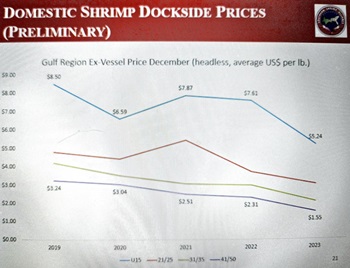 A congressional committee is investigating allegations of slave labor in the Indian shrimp industry. Such practices are among those blamed for rock-bottom shrimp prices negatively affecting Louisiana shrimpers. The House Committee on Natural Resources is investigating accusations of forced labor as well as importation of illegally obtained fish products. Additionally, the committee is looking at fraudulent reporting through the Seafood Import Monitoring Program, and the illegal use of antibiotics. The health of the American shrimp industry can often be measured by the number of landings each year. Those numbers have been on a mostly steady decline since 2001, with only five years above the downhill slope. more, >>CLICK TO READ<< 09:10
A congressional committee is investigating allegations of slave labor in the Indian shrimp industry. Such practices are among those blamed for rock-bottom shrimp prices negatively affecting Louisiana shrimpers. The House Committee on Natural Resources is investigating accusations of forced labor as well as importation of illegally obtained fish products. Additionally, the committee is looking at fraudulent reporting through the Seafood Import Monitoring Program, and the illegal use of antibiotics. The health of the American shrimp industry can often be measured by the number of landings each year. Those numbers have been on a mostly steady decline since 2001, with only five years above the downhill slope. more, >>CLICK TO READ<< 09:10
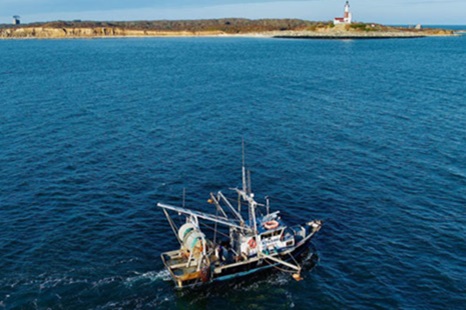
Once Sourced Out-of-State, Shrimp From New York Is Becoming a Status Ingredient
When wild shrimp is US-harvested, it’s pulled in-season from the waters off Louisiana, Texas, Florida, and the Carolinas. Increasingly, though, a select number of New York restaurants are embracing local shrimp, highlighting fisheries in and around Montauk. Long Island’s royal red shrimp is caught off Montauk at nearly 3,000 feet. “Their color is a gorgeous, gorgeous dark red; a color I’ve never seen in my life,” says lifelong fisherman, K.C. Boyle. Photos, more, >>CLICK TO READ<< 06:42
Fewer shrimpers are hitting the water in North Carolina
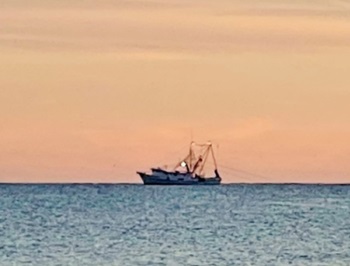 You remember what Forrest Gump says after he becomes a shrimp boat captain: “Shrimping tough! “Well, that’s certainly true in North Carolina, where shrimp is the second-most commercially harvested seafood. The total dockside value of shrimp in the state in 2022, what seafood dealers pay before it gets sold wholesale, was about $10 million. That’s down from about $30 million in the 1980s and 1990s. The slip in value has led to a decline in the number of licensed shrimpers hitting the water, to the lowest on record in 2022. Reporter Johanna Still looked into what’s behind it all. more, >>listen or read<< 10:55
You remember what Forrest Gump says after he becomes a shrimp boat captain: “Shrimping tough! “Well, that’s certainly true in North Carolina, where shrimp is the second-most commercially harvested seafood. The total dockside value of shrimp in the state in 2022, what seafood dealers pay before it gets sold wholesale, was about $10 million. That’s down from about $30 million in the 1980s and 1990s. The slip in value has led to a decline in the number of licensed shrimpers hitting the water, to the lowest on record in 2022. Reporter Johanna Still looked into what’s behind it all. more, >>listen or read<< 10:55
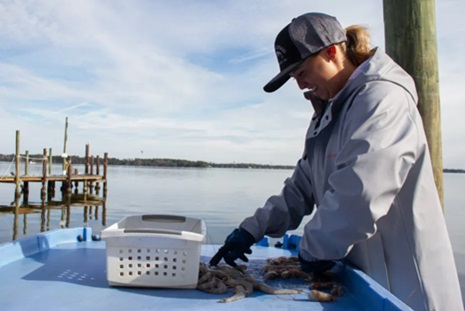
Shrimpin’ Ain’t Easy
Flicking heads off shrimp is one of the first jobs you learn when you’re born a Davis. Joseph “Jody” Davis remembers filling up a bucket of beheaded shrimp for his grandmother for a quarter when he was just 4 years old. “It wasn’t bad money in the ’70s,” he said, standing on the dock of Davis Seafood, the family business in Sneads Ferry. His 25-year-old daughter, Hannah, swiftly beheads a just-caught batch for a customer order. Muscle memory fills the bin. “We’ve been at this exact spot since 1949,” he said. “But we’ve been commercial fishermen for centuries.” The Davis Seafood office door is decorated with two stickers bearing the same mantra: “FRIENDS DON’T LET FRIENDS EAT IMPORTED SHRIMP.” Customers notice it and laugh. “But it’s more than just comedy,” Davis said. “It’s a way of life for us. And if people just cast us aside, we’re done.” photos, more, >>click to read<< 16:12
Louisiana LNG Could Be ‘Nail in the Coffin’ for Local Fishermen
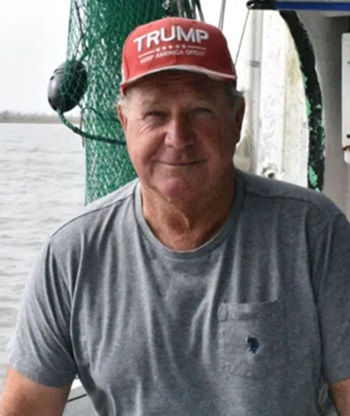 Phillip Dyson has been a commercial fisherman in Cameron, Louisiana for 49 years. His father fished before him, and his son and grandson also fish, shrimp, and oyster in the brackish waters where the Calcasieu River empties out into the Gulf of Mexico. Even his great-grandson is getting into the family trade. “Always in Cameron,” Dyson said. Even in a state famous for its seafood, Cameron once stood out. A few decades ago, Cameron was the largest producer of seafood in the entire country, hauling in hundreds of millions of pounds of fish, shrimp, and oysters each year. But those days are long gone. Cameron Parish is still home to a dwindling number of commercial fishermen. Two decades ago, there were around 250 commercial fishing vessels in Cameron. “We’re down to about 16 now,” Commercial fishermen in southwest Louisiana say that the growth of LNG is putting them out of business. They are particularly outraged at Venture Global’s Calcasieu Pass LNG facility, which sits at the mouth of the Calcasieu River on the Gulf of Mexico. The facility has been flaring on and off for the better part of two years, hobbled by persistent equipment malfunctions. Noise and air pollution have made life difficult for nearby residents. Photos, more, >>click to read<< 14:46
Phillip Dyson has been a commercial fisherman in Cameron, Louisiana for 49 years. His father fished before him, and his son and grandson also fish, shrimp, and oyster in the brackish waters where the Calcasieu River empties out into the Gulf of Mexico. Even his great-grandson is getting into the family trade. “Always in Cameron,” Dyson said. Even in a state famous for its seafood, Cameron once stood out. A few decades ago, Cameron was the largest producer of seafood in the entire country, hauling in hundreds of millions of pounds of fish, shrimp, and oysters each year. But those days are long gone. Cameron Parish is still home to a dwindling number of commercial fishermen. Two decades ago, there were around 250 commercial fishing vessels in Cameron. “We’re down to about 16 now,” Commercial fishermen in southwest Louisiana say that the growth of LNG is putting them out of business. They are particularly outraged at Venture Global’s Calcasieu Pass LNG facility, which sits at the mouth of the Calcasieu River on the Gulf of Mexico. The facility has been flaring on and off for the better part of two years, hobbled by persistent equipment malfunctions. Noise and air pollution have made life difficult for nearby residents. Photos, more, >>click to read<< 14:46
State fisheries advisory committees to review issue paper on trawling closures to protect submerged aquatic vegetation
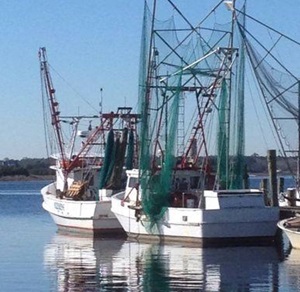 A controversial proposal that could lead to shrimp trawling area closures to protect submerged aquatic vegetation took a step toward future consideration by the N.C. Marine Fisheries Commission last week. The commission, policy-making arm of the N.C. Division of Marine Fisheries, voted during its quarterly business meeting in New Bern to refer an issue paper pertaining to the concept to its northern, southern and shellfish/crustacean advisory committees to get input from the public. Glenn Skinner, executive director of the N.C. Fisheries Association, a Morehead City-based trade and lobbying group for commercial watermen, said he and his members are concerned, in part because the state has already permanently or seasonally closed more than 1.2 million acres of estuarine waters to shrimp trawling. more, >>click to read<< 10:18
A controversial proposal that could lead to shrimp trawling area closures to protect submerged aquatic vegetation took a step toward future consideration by the N.C. Marine Fisheries Commission last week. The commission, policy-making arm of the N.C. Division of Marine Fisheries, voted during its quarterly business meeting in New Bern to refer an issue paper pertaining to the concept to its northern, southern and shellfish/crustacean advisory committees to get input from the public. Glenn Skinner, executive director of the N.C. Fisheries Association, a Morehead City-based trade and lobbying group for commercial watermen, said he and his members are concerned, in part because the state has already permanently or seasonally closed more than 1.2 million acres of estuarine waters to shrimp trawling. more, >>click to read<< 10:18
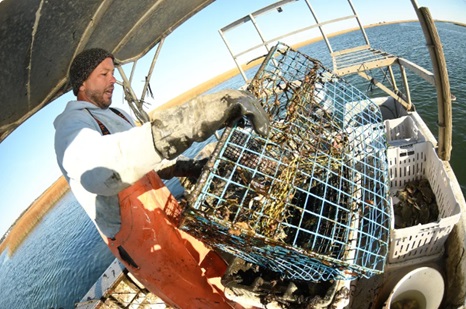
Hook, line and sinking: What’s the future of NC’s commercial fishing industry?
With a well-trained hook of the line by one of the founders and co-owners of Wilmington’s Seaview Crab Company, a few loops around the puller and a flick of a switch, the crab pot soon emerged. Inside the pot, a dozen or so blue crabs scampered around, some using their impressive claws to attach themselves to the mesh-sides of the cage. “It’s not always easy, but this never gets old,” Romano, 44, said as he emptied the crabs into a holding bin before checking to make sure they were all of legal size, the lucky ones getting tossed back into the waterway. The others were divided by size into containers to be sold individually − “These are the ones everyone wants,” Romano joked as he held up a good-sized crab − or to be sent to a crab house to be picked apart for their meat. photos, more, >>click to read<< 07:12
A unique partnership connects Lowcountry fishermen with people who don’t have enough to eat
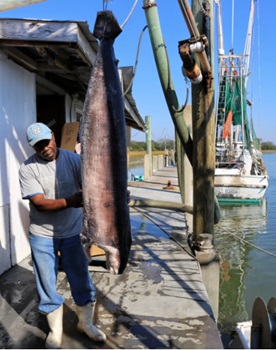 Daniel LaRoche watches as his crew, who’s just returned from nearly two weeks at sea, hoists dozens of giant swordfish from the belly of a boat. Some are real whoppers, weighing more than 200 lbs. LaRoche owns Cherry Point Seafood on Wadmalaw Island, just south of Charleston, selling fresh fish and shrimp from his dock. But making a living, he says, has never been harder. He wrestles daily with the rising costs of fuel, boat repairs and lures. LaRoche says he must sell even more shrimp to compete with imports as he struggles to keep up. Now, a new program promises help, by providing monthly pre-paid orders for 160 pounds of his shrimp and swordfish. So, who’s picking up the tab? The South Carolina Aquarium in Charleston. photos, more, >>click to read<< 09:12
Daniel LaRoche watches as his crew, who’s just returned from nearly two weeks at sea, hoists dozens of giant swordfish from the belly of a boat. Some are real whoppers, weighing more than 200 lbs. LaRoche owns Cherry Point Seafood on Wadmalaw Island, just south of Charleston, selling fresh fish and shrimp from his dock. But making a living, he says, has never been harder. He wrestles daily with the rising costs of fuel, boat repairs and lures. LaRoche says he must sell even more shrimp to compete with imports as he struggles to keep up. Now, a new program promises help, by providing monthly pre-paid orders for 160 pounds of his shrimp and swordfish. So, who’s picking up the tab? The South Carolina Aquarium in Charleston. photos, more, >>click to read<< 09:12
Will SAFMC open oculina coral reef to shrimp trawling? Environmentalists oppose plan
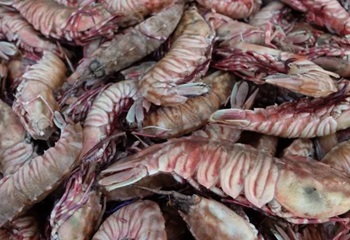 Will an area of ocean bottom offshore of Florida’s Atlantic coast soon be reopened to shrimp fishers? That’s what’s expected to be decided Thursday during a meeting of the South Atlantic Fishery Management Council’s Habitat Protection and Ecosystem Based Management Committee. They will vote on a motion to open a 22-square-mile area of sea floor about 20 miles offshore of St. Lucie, Indian River and Brevard counties. The area is believed to be an area where rock shrimp, and several other varieties of shrimp, can be harvested for sale in Florida seafood markets and restaurants. Commercial fishers say the area, closed to shrimp trawling since 2014, is ripe for productive fishing. Conservationists disagree, saying the area needs to remain closed to protect the slow-growing deepwater oculina coral from fishing practices that could harm the coral. more, >>click to read<< 14:25
Will an area of ocean bottom offshore of Florida’s Atlantic coast soon be reopened to shrimp fishers? That’s what’s expected to be decided Thursday during a meeting of the South Atlantic Fishery Management Council’s Habitat Protection and Ecosystem Based Management Committee. They will vote on a motion to open a 22-square-mile area of sea floor about 20 miles offshore of St. Lucie, Indian River and Brevard counties. The area is believed to be an area where rock shrimp, and several other varieties of shrimp, can be harvested for sale in Florida seafood markets and restaurants. Commercial fishers say the area, closed to shrimp trawling since 2014, is ripe for productive fishing. Conservationists disagree, saying the area needs to remain closed to protect the slow-growing deepwater oculina coral from fishing practices that could harm the coral. more, >>click to read<< 14:25
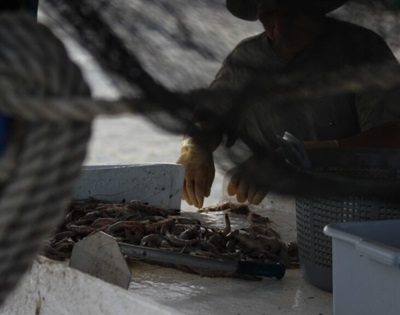
That ‘Gulf’ shrimp you ate probably wasn’t from the Gulf of Mexico
What if every imported seafood product for sale in Louisiana had a red sticker with the word “Imported” affixed to the front of its packaging? That question is one of several the state Seafood Safety Task Force is asking in an effort to address a struggling domestic fishery and increasing health risks from imported catch. The task force met Friday for just the second time in over a decade following a long dormant period that ended last month. State Sen. Fred Mills, R-St. Martinville, chairs the task force that he said will try to develop solutions to address three areas: the health and safety of consumers, the economy of the domestic seafood sector, and consumer education. An influx of cheap foreign catch has flooded the seafood market in Louisiana, and most restaurants in the state choose to serve imported shrimp and crawfish to patrons who are either oblivious to it or mistakenly believe they’re eating local fare, according to the Louisiana Shrimp Association. The effects have decimated a local industry and unique Louisiana culture while also potentially introducing harmful contaminants into the food supply. >>click to read<< 11:52
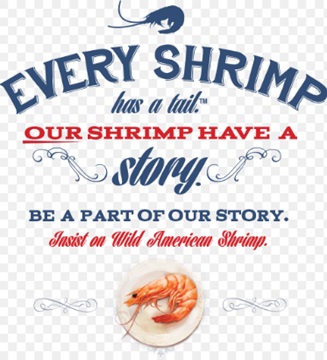
American Shrimp Processors Association Launches Trade Petitions Addressing Unfair Dumping and Illegal Subsidies
Today, the American Shrimp Processors Association (ASPA) filed trade petitions seeking antidumping duties on imported frozen warmwater shrimp from Ecuador and Indonesia and countervailing duties on imported shrimp from Ecuador, India, Indonesia, and Vietnam. The U.S. shrimp market has been overwhelmed by massive quantities of underpriced shrimp imports, resulting in unsustainably low dockside prices, falling domestic market share, significantly lower profit margins, and historically high inventory levels. >>click to read<< 07:56
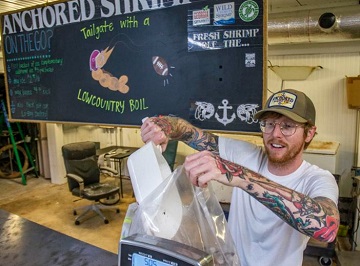
Shrimp Alliance request fisheries disaster declaration
There’s no other way to put it if you ask Aaron Wallace. Despite a decent catch by the eight shrimp boats that supply Anchored Shrimp Co. in Brunswick, the prices fishermen are getting for their hauls aren’t what they should be. “It’s been one of our toughest years,” Wallace said. He and his father, John Wallace, own Anchored Shrimp and operate the Gale Force, one of the boats that serve the company’s retail and wholesale business. The Southern Shrimp Alliance, for which John Wallace serves as a member of the board of directors, is calling the flood of imported shrimp a crisis. The alliance asked the governors of Alabama, Florida, Georgia, Louisiana, Mississippi, North Carolina, South Carolina and Texas in a letter on Aug. 25 to collectively request a fisheries disaster determination by the U.S. Secretary of Commerce for the U.S. shrimp fishery. >>click to read<< 11:06
EDITORIAL: Commercial fishing avoids being gaffed one more time
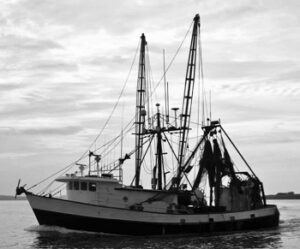 In August of 2020, almost three years before the date of the circuit court decision, a citizen’s lawsuit was filed against local shrimp trawl operators who regularly trawl for shrimp in Pamlico Sound. The plaintiffs argued that shrimp trawlers are violating the Clean Water Act by engaging in two type of unpermitted activity, “throwing bycatch (untargeted fish) overboard and disturbing sediment with their trawl net.” Named as defendants were local trawl owners who fortunately, with the help of outside support, were able to withstand the cost and time to defend themselves and by extension, the commercial fishing industry, during the three-year path of the lawsuit. >click to read< 08:15
In August of 2020, almost three years before the date of the circuit court decision, a citizen’s lawsuit was filed against local shrimp trawl operators who regularly trawl for shrimp in Pamlico Sound. The plaintiffs argued that shrimp trawlers are violating the Clean Water Act by engaging in two type of unpermitted activity, “throwing bycatch (untargeted fish) overboard and disturbing sediment with their trawl net.” Named as defendants were local trawl owners who fortunately, with the help of outside support, were able to withstand the cost and time to defend themselves and by extension, the commercial fishing industry, during the three-year path of the lawsuit. >click to read< 08:15
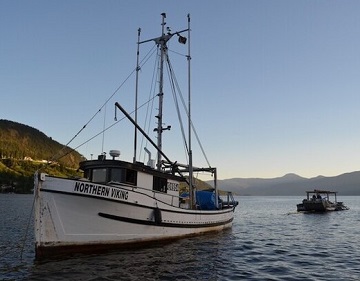
Learn all about Okanagan Lake’s shrimp boat fleet
You don’t have to be Forrest Gump to start your own career as a shrimp fisherman. In fact, Okanagan Lake has its own shrimp fleet. Piscine Energetics operates research vessels that harvest mysis shrimp from the lake. Harvesting has been ongoing each summer since 2000. It was started in response to falling kokanee numbers. The shrimp had been introduced in the 1960s and were seen as a food source for the fish. For a few years, record size kokanee were caught. But the plan soon backfired when it was realized the shrimp were competing for food with the kokanee fry. A recent ad recruiting shrimp boat deckhands explains Piscine’s “mission to restore fish populations to their natural levels through the management of invasive aquatic organisms.” Interesting video, >click to read< 10:08
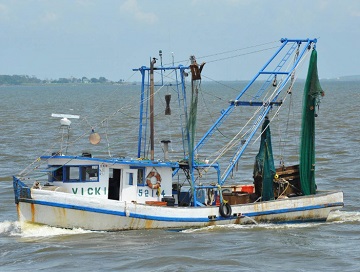
Texas Congressmen Call on Biden Administration to Protect American Shrimp Industry
With Texas shrimpers struggling to hold on to market share, a bipartisan group of the state’s congressional delegation is asking the Biden administration to do more to protect the industry from foreign providers accused of dumping cheap and less regulated shrimp into U.S. markets. On Tuesday, Reps. Troy Nehls (R-TX-22) and Randy Weber (R-TX-14) sent a letter to U.S. Secretary of Commerce Gina Raimondo and U.S. Trade Representative Katherine Tai requesting more information on the administration’s plans to protect shrimping. “Our nation’s shrimpers are being put out of business because of foreign shrimp being dumped into domestic markets,” said Nehls in a statement. >click to read< 13:20
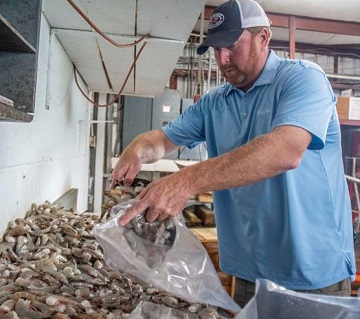
Shrimp season may be slow, opens June 20
Georgia’s shrimp season should start well when it opens June 20, but scientists and shrimpers expect it will taper off as fall settles in the Golden Isles. That has been the case the past couple of years when shrimpers are allowed to trawl in state waters, which extend to three miles offshore, said Frank Owens, owner of City Market in Brunswick. He expects to see the same thing this year when unloading boats at the market’s docks in Brunswick. There are some of the desirable, plump, white roe shrimp being caught already. But how good those catches are and for how long that quality lasts is hard to tell, Owens said. “Today I unloaded some boats that were about half white shrimp and half brown shrimp,” Owens said this week. “These last few years, spring has been good, but fall has been a bit off.” >click to read< 09:18
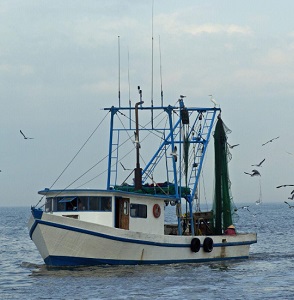
Louisiana: Lawmakers taking action to protect state’s seafood industry
Fishermen in Louisiana are suffering from imports and they’re worried about the future of the seafood industry in the state. It’s why lawmakers are putting tougher restrictions on imports to help struggling shrimpers. Fishermen say they are at risk of losing their livelihoods due to inflation and the abundance of imported seafood. It’s why shrimpers stood on the capitol steps urging lawmakers to do something. Louisiana Shrimp Association President Acy Cooper has been a fisherman in Louisiana for 45 years. He said he hopes he is able to keep it alive so that his grandkids can carry on the legacy. >click to read< 09:12






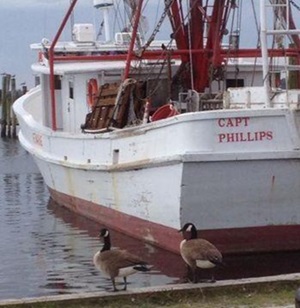



























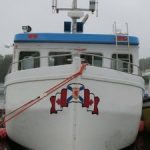
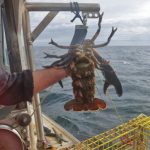
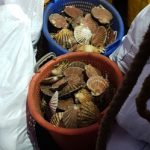
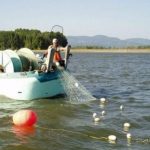

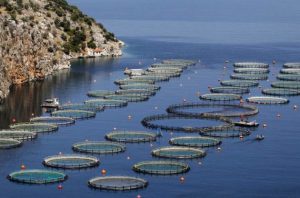
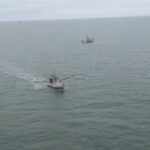

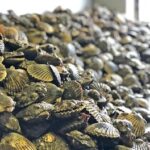
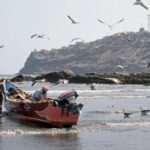



Commercial fishing industry deserves greater appreciation
Share this post